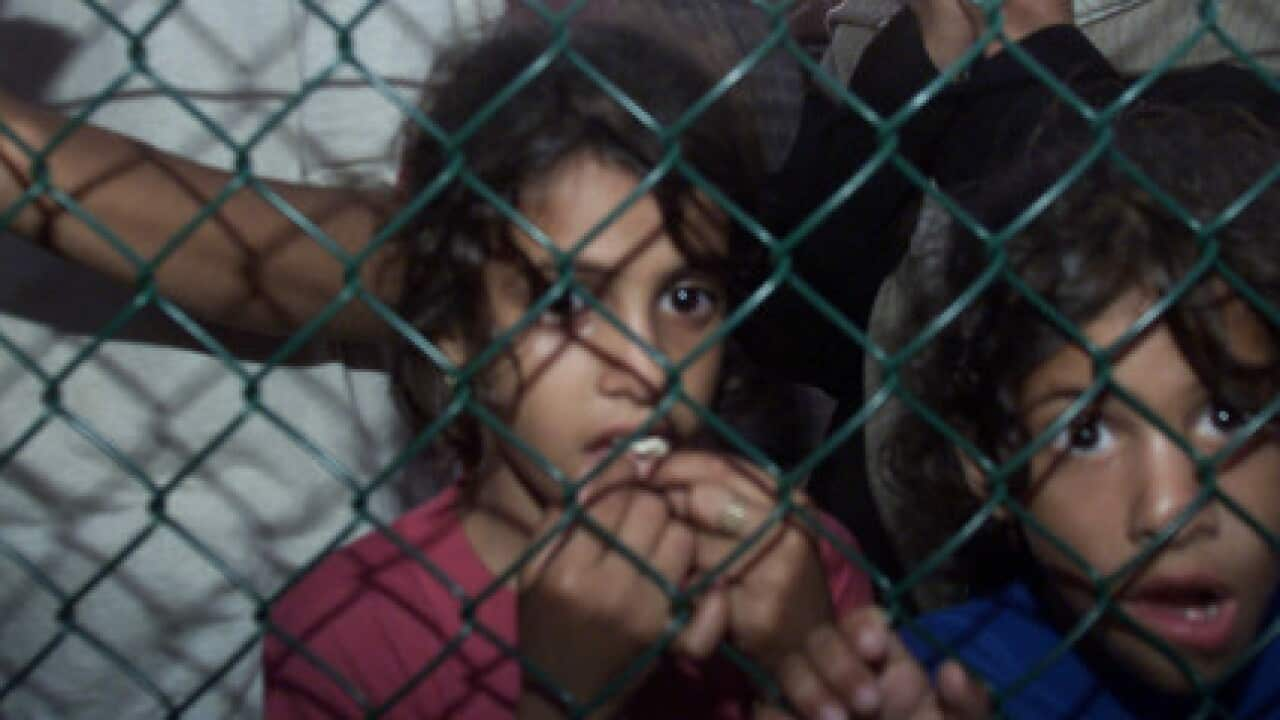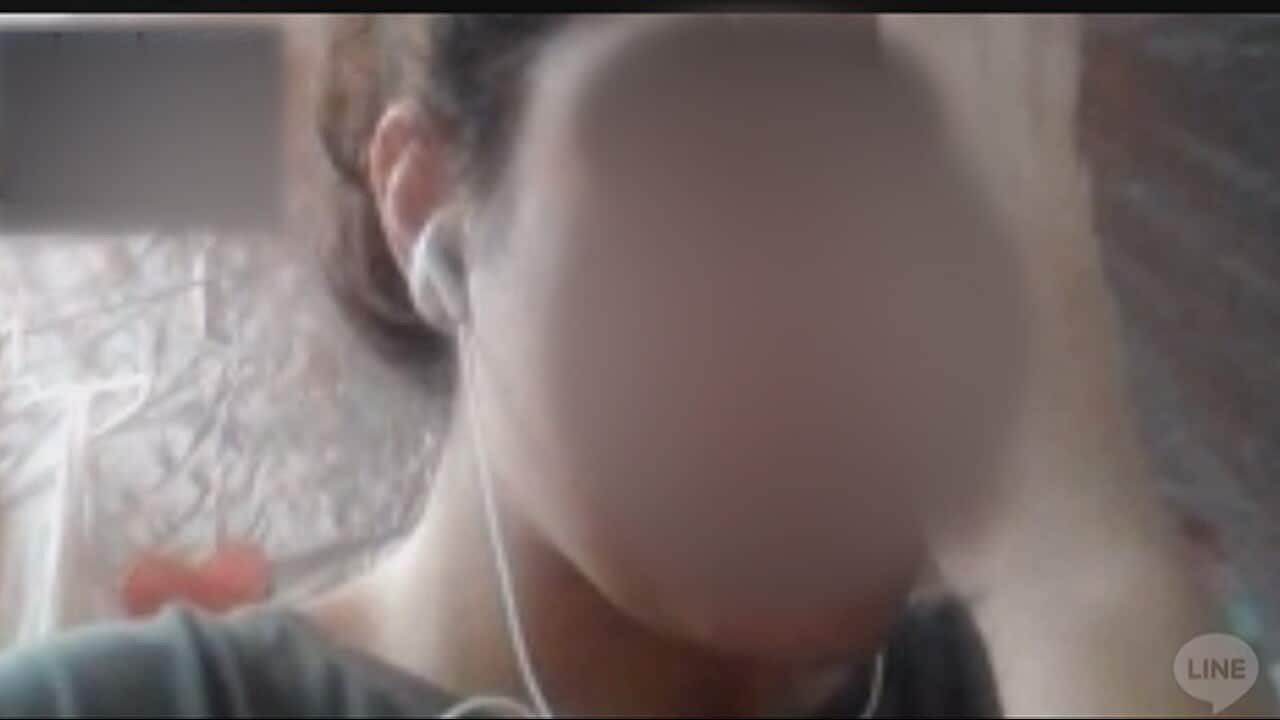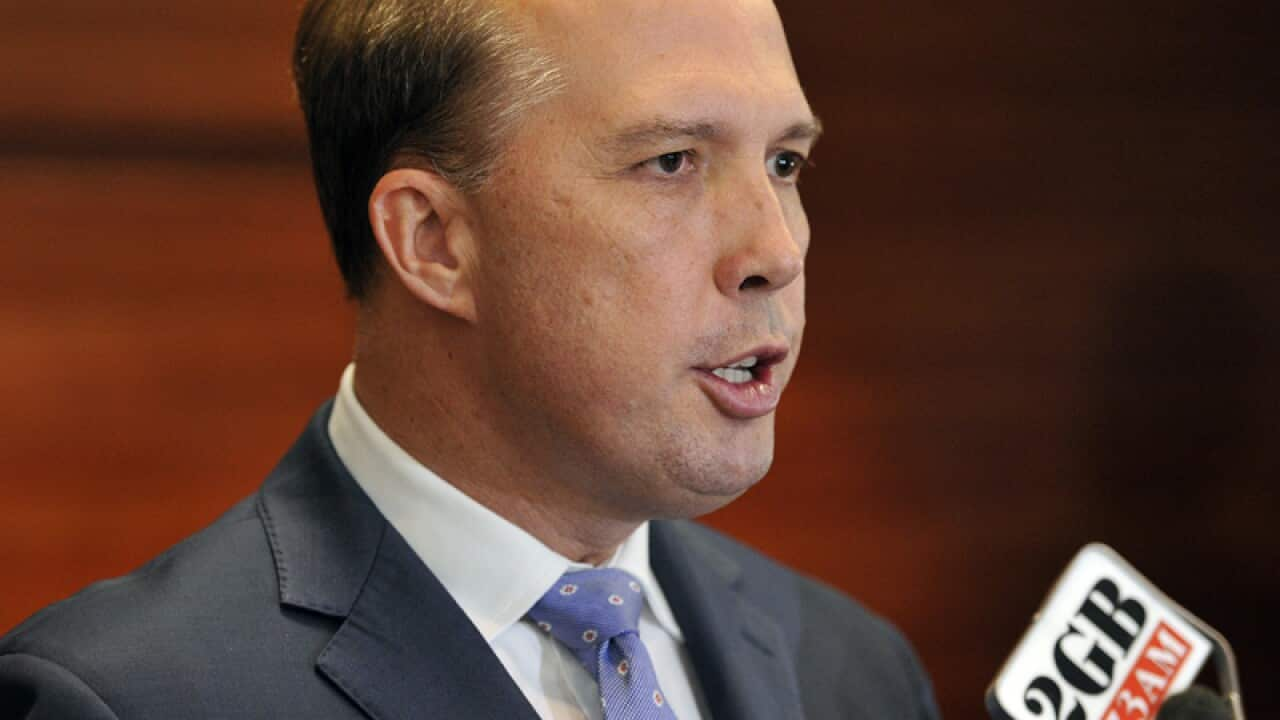The lives of refugees and asylum seekers being held in Australian offshore immigration detention continue to be at risk while they remain there, according to more than 100 current and former workers at the centres.
The group of doctors, teachers and case workers from a number of service providers have worked closely with people being held in immigration detention in Nauru and on Manus Island. They say the situation is at 'crisis level' and must end now.
After giving evidence at inquiries and reviews and seeing it 'ignored', the group has chosen to speak publicly about their work in Australian immigration detention.
It is a decision that potentially puts them of secrecy provisions in the Australian Border Force Act.
They reject the proposal for a senate inquiry - saying it would just delay any action - and are instead calling for the refugees and asylum seekers to be brought immediately to Australia.
"It’s set up to deliberately harm because it has to be seen as a deterrent to stop other people coming by boat."
Dr Peter Young, a psychiatrist and a former director of mental health services with IHMS (International Health and Medical Services), says the group's statement is less about the mass release of Nauru immigration detention incident reports and more about the political response to them.
"This Nauru Files leak has allowed the public to get a glimpse into what’s going on despite the best efforts of the government to stop them from doing that," Dr Young told SBS.
"And of course now the government has tried to minimise the significance of this information and to hope that it all goes away."
He says offshore immigration detention must end because it has been set up to cause deliberate harm.
"It’s set up to deliberately harm because it has to be seen as a deterrent to stop other people coming by boat, and as a way of trying to force them to go back to where they came from. That is the absolute design of the system."
"They are in fact in jail still, except the walls there are the ocean."
Save the Children Education Manager Pam Oakes has worked with refugees who have been settled in the Nauru community. She told SBS that even those granted refugee status on Nauru face incredibly difficult conditions.
"They are in fact in jail still, except the walls there are the ocean. They cannot pursue the things that they want to pursue. They cannot pursue a career or education in a real sense, and so everyone's life is on hold.
"There are tensions between the local people and the refugees. There are tensions growing between the refugees. It is just increasing the mess."
Senior Caseworker with Save the Children, Fleur Noonan says people on Nauru are in urgent need of certainty about their futures.
"We've had inquiries, and the review has been done. The UN and Amnesty have done observations, and its been found that prolonged indefinite detention does cause harm... They need to know a timeline."
Dr Young agrees: “Another inquiry just delays the process and the required action is obvious."
While the obvious action he is referring to is closing the detention centres in Nauru and Manus Island, Dr Young says that if they are placed in immigration detention within Australia "that will only continue to perpetuate the harm".
"They need to be dealt with properly, according to Australia’s obligations and to have their cases dealt with and processed, rather than indefinitely warehoused – whether it is offshore or in Australia.”
In a statement to SBS, Immigration Minister Peter Dutton said: "I understand people want every person released from immigration detention and regional processing centres."
"The fact is I have to make decisions to remove people as quickly as possible as we have done with every child in detention, but it must be done in a way that we don't see boats and deaths at sea recommence."
At risk for speaking out
This is not the first time Dr Young has spoken to the media about his work relating to offshore immigration detention, risking the two-year jail sentence penalty outlined in the Border Force Act.
In April he appeared on an into the death of Iranian Hamid Khazaei on Manus Island.
Prior to being interviewed for the program, Dr Young was questioned by Australian Federal Police over information that had been leaked relating to the asylum seeker's death - but he says "there's been no repercussions" for speaking to the media.
"Unfortunately, the purpose of this legislation is to really just trying to silence dissent and to ensure compliance from everybody within the system to keep what’s going on secret from the public. And unfortunately it has been reasonably successful of that."
He says the release of information into the public domain, especially in the Nauru Files, might just have "opened the floodgate".
"This many people, I’ve never seen anything like this before where this many people are prepared to come out and to talk about the terrible things that are going on there."





